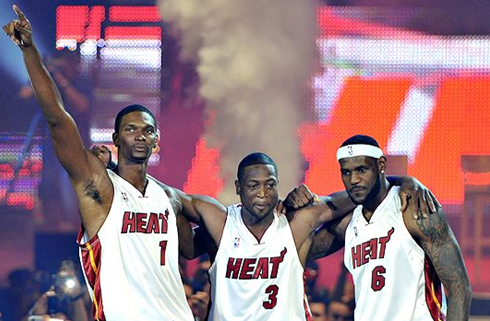eDiscovery Daily Blog
eDiscovery Trends: More On the Recommind Patent Controversy

Perhaps the most controversial story discussed in the eDiscovery community in quite some time is the controversy regarding the patent recently announced by Recommind for Predictive Coding via press release entitled, Recommind Patents Predictive Coding, issued on June 8. I haven’t seen this much backlash against a company or individual since last summer when LeBron James’ decision to leave the Cleveland Cavaliers for the Miami Heat (and the subsequent championship-like celebration that he and his teammates conducted before the season). How did that turn out? 😉
Since that announcement, there have been several articles and blog posts about it, including:
- This one, from Monica Bay of Law Technology News, asking the question: “Is Recommind Blowing Smoke?” where discussed the buzz over Recommind’s announcement;
- This one, from Evan Koblentz (also of Law Technology News), entitled “Recommend Intends to Flex Predictive Coding Muscles” which includes responses from Catalyst and Valora Technologies;
- This one, also from Evan Koblentz, a blog post from EDD Update, where Recommind General Counsel and Vice President Craig Carpenter acknowledges that Recommind failed to obtain a trademark for the term Predictive Coding (though Recommind is still using the ™ symbol on the term Predictive Coding onthis page);
- Three blog posts in four days from Sharon D. Nelson of Ride the Lightning blog, which debate the enforceability of the patent and include a response from OrcaTec, noting that Recommind’s implied threat of litigation is “nothing more than an attempt to bully the market place”.
There are several other articles and blog posts regarding the topic, but if I listed them all, I’d have no room left for anything new! Sorry that I couldn’t include them all.
I reached out to Bill Dimm, founder of Hot Neuron LLC, makers of Clustify, which clusters documents in groups for effective, expedited review and asked him his thoughts about the Recommind press release and patent. Here are his comments:
"Recommind's press release would have been accurately titled 'Recommind Patents a Method for Predictive Coding,' but it went with the much more provocative title 'Recommind Patents Predictive Coding,' implying that its patent covers every conceivable way of doing predictive coding. The only way I can see that being accurate is if you DEFINE predictive coding to be exactly the procedure outlined in claim 1 of Recommind's patent. Of course, 'predictive coding' is a relatively new term, so the definition is up for debate. The patent itself says:
'Predictive coding refers to the capability to use a small set of coded documents (or partially coded documents) to predict document coding of a corpus.' That sure sounds like it allows for a lot of possibilities beyond the procedure in claim 1 of the patent. The press release goes on to say: 'ONLY [emphasis is mine] Recommind's patented, iterative, computer-assisted approach can 'bend the cost curve' of document review.' Really? So, Recommind has the ONLY product in the industry that works? A few of us disagree. Even clustering, which Recommind claims does not qualify as predictive coding will bend the cost curve because the efficiency boost it provides increases with the size of the document set.
Moving on from the press release to the patent itself, I would recommend reading claim 1 if you are interested in such things. It is the most general method that the USPTO allowed Recommind to claim – the other claims are all dependent claims that describe more specific embodiments of claim 1, presumably so that Recommind would have a leg left to stand on if prior art was found to invalidate claim 1. Claim 1 describes a procedure for predictive coding that involves quite a few steps. It is my understanding (I am NOT a lawyer) that the patent is irrelevant for any predictive coding procedure that does not include every single one of the steps listed in claim 1. Since claim 1 includes things like identification cycles, rolling loads, and random sampling, it seems unlikely that existing products would accidentally infringe on the patent.
As far as Clustify is concerned, Recommind's patent is irrelevant since our procedure for predictive coding is different. In fact, I explained in a presentation at a recent conference why random sampling is a very inefficient approach (something that has been known for decades in other fields), so I wouldn't even be tempted to follow Recommind's procedure."
So, what do you think? Will the Recommind predictive coding patent allow them to rule predictive coding? Or only their specific approach? Will LeBron James ever win a championship? Please share any comments you might have or if you’d like to know more about a particular topic.
Full disclosure: Hot Neuron is a partner of Trial Solutions, which has used their product, Clustify, in various client projects.
